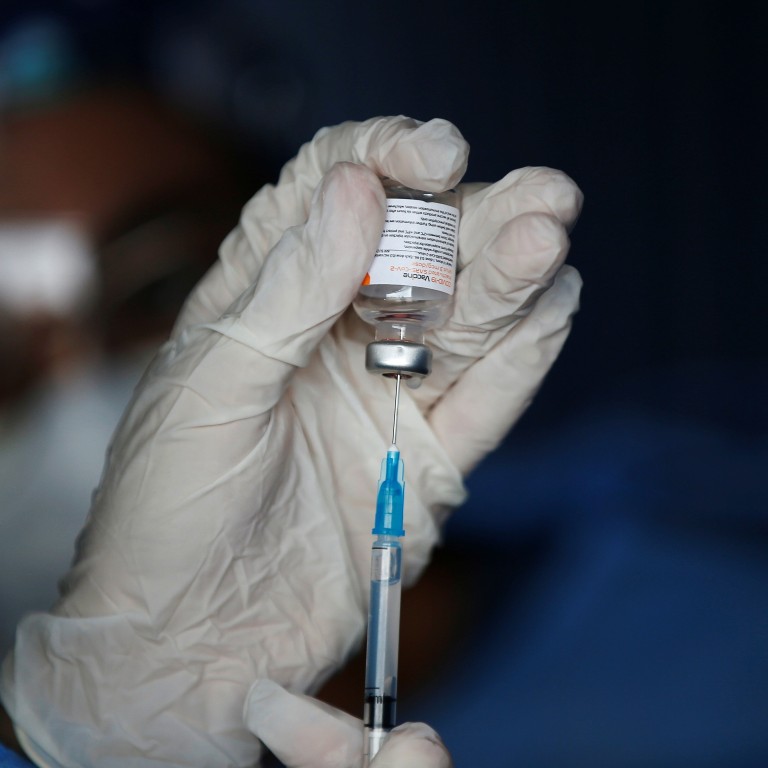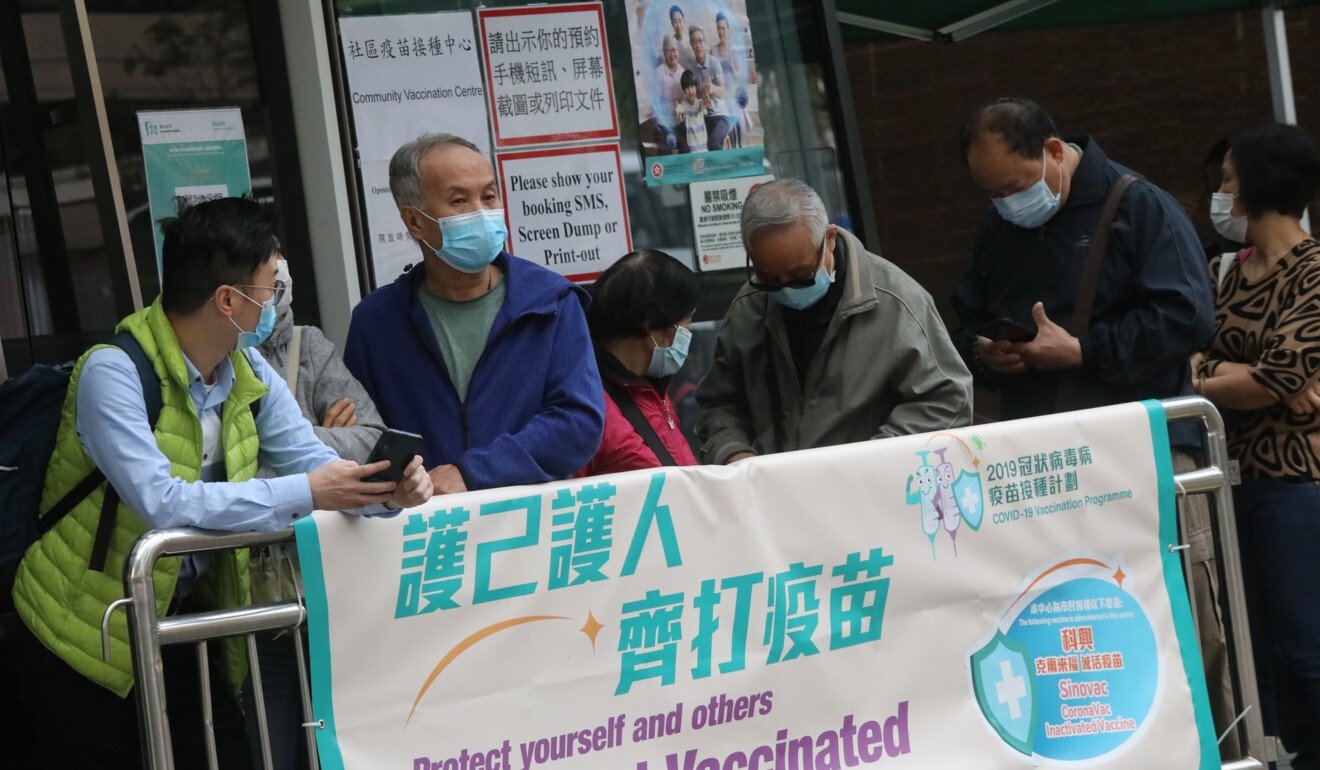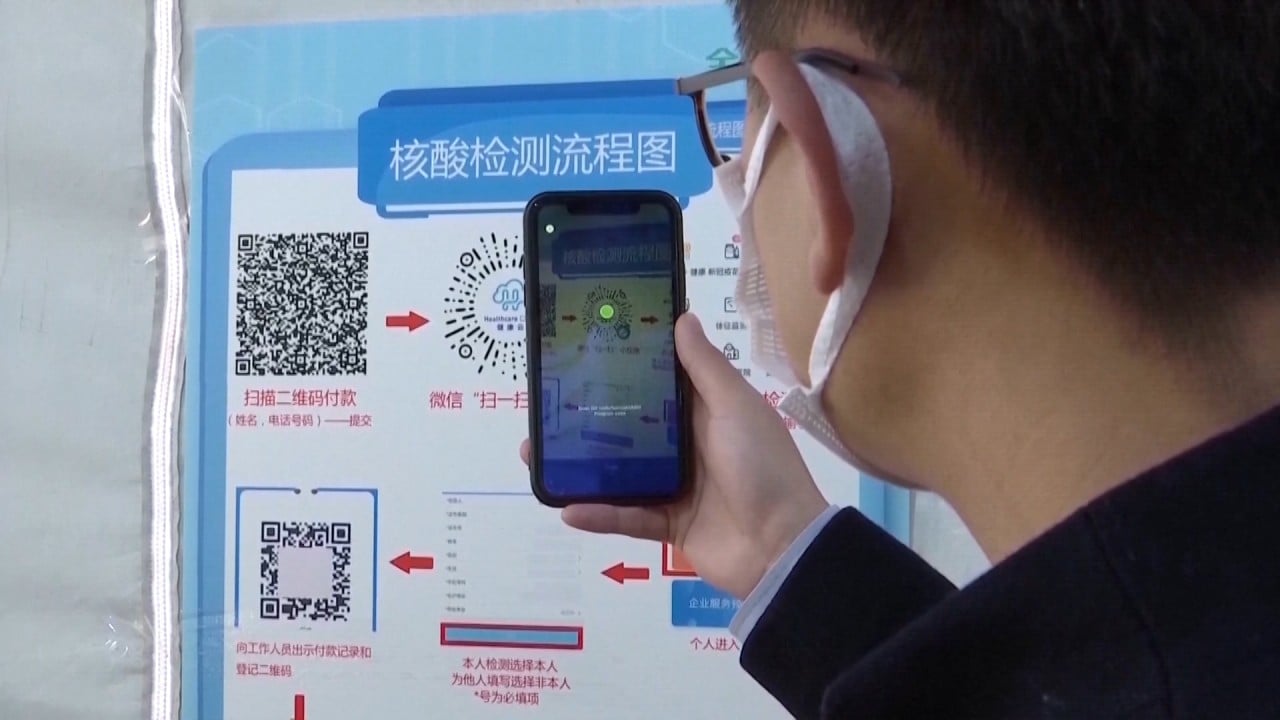
Hong Kong vaccines: information overload, lack of context provoking ‘unnecessary’ fears of Sinovac jabs, experts say
- While the city’s guidelines for reporting potential adverse reactions to Covid-19 vaccines are quite broad, officials have not done enough to supplement their briefings with the proper background, according to experts
- For instance, if the public were better informed about the normal incidence rates of various ailments, ‘people would be mentally prepared’ when potential reactions are reported
The city has experienced an apparent plunge in public confidence in the Chinese-made Sinovac vaccine since the first death of a recent recipient of the jab was revealed last week. Reports of two more deaths and three other people requiring intensive care after receiving the shots surfaced in the past week.
Despite the repeated insistence of experts that the medications are safe and the inoculation scheme should carry on, the number of people turning up for their appointments at community vaccination centres has continued to fall, from 89 per cent on Saturday to 64 per cent on Tuesday, suggesting a drop in public trust.
The early take-up rate for the BioNTech vaccine – first made available on Wednesday – was 91 per cent, with 5,900 people receiving the shot.
The sentiment, according to respiratory medicine specialist Dr Leung Chi-chiu, was partly a “misunderstanding” born out of an unusual surfeit of information regarding adverse events following Covid-19 vaccinations.
“Our reporting system is more extensive than that of many other places – that’s why the misunderstanding was created,” Leung said.
“Many places would only report possible or suspected cases. But Hong Kong includes all [adverse events] without revealing the background [incidence] rates, and so it appears like we’ve had lots of cases,” he said. “It was an unnecessary fear.”
Leung noted that the adverse conditions that would be truly alarming to health care staff would be neurological disorders such as Guillain-Barré syndrome and facial paralysis.
Hong Kong had administered Sinovac injections to more than 101,700 people by the time the third death was reported on Monday. An expert panel on vaccine reactions has preliminarily ruled that the first two deaths were not directly linked to the jab, and a decision on the third is still pending.
Meanwhile, 56 deaths were reported among the roughly 44 million people who had received Sinovac doses worldwide as of the end of last month, all of them similarly found not to be directly related to the shot.
According to Department of Health guidelines on reporting adverse events following Covid-19 immunisation, health care professionals are encouraged to disclose suspected serious reactions, ones that are “deemed medically significant” and any other unknown side effects.
The guidelines also state that health care professionals “do not need to be certain that the adverse event was related to the Covid-19 vaccine” when making such a report.

William Chui Chun-ming, president of the Society of Hospital Pharmacists of Hong Kong, said the city’s surveillance system was largely based on the standards set by the World Health Organization and the European Union.
While the guideline listed conditions that required reporting, Chui said further clarifications should also be stated on what would not need to be reported.
“Common side effects of vaccines should not be reported ... nausea should not be reported,” he said.
Some of the common side effects of the Sinovac and BioNTech vaccines, both being administered in the city, included headache and pain at the site of injection.
A similar reporting system was also in place in Singapore, which began its vaccination drive in late December. The city state has so far administered over 610,000 doses, and has reported at least four cases of anaphylaxis – or serious allergic reactions – and over 430 adverse events, most involving mild symptoms such as injection site pain, fever and headache.
Call for greater guidance on Covid-19 vaccine side effects; Hong Kong leader says shots ‘safe’
But unlike in Hong Kong, where some people have urged a suspension of vaccinations for people aged 60 or older until more clinical data is released, such calls have not gained traction in Singapore.
“It’s not even a conversation,” said Professor Dale Fisher, an infectious disease expert from the National University of Singapore. “If there was a possible adverse event, it would be investigated within the same day or the next day, to see if there was any possible link attributable to the vaccine.”

01:26
China seeks recognition of its WeChat-based digital health certificates for overseas travel
Another reason for the lack of public concern, he added, was the fact that no abnormalities had been identified by safety surveillance programmes around the world, even after some 320 million doses of different brands of coronavirus vaccine had been administered globally.
“There’s no signal these [severe] diseases saw an increased incidence beyond the background natural incidence,” Fisher said.
He said the key to addressing public concerns over adverse cases was staying proactive and conducting fast, thorough and independent investigations. Information released by the authorities also needed to be very transparent, he added.

While Hong Kong’s expert committee met quickly to look into the severe cases and release their findings to the media, Leung said they had failed to explain to the public that some seeming adverse reactions detected under the current surveillance mechanism could be explained by the ailments’ normal incidence rates.
“We might see a certain number of people getting admitted to hospitals, based on the amount of admissions due to acute diseases in general,” Leung said, suggesting that if the public were better informed about these background incidence rates “people would be mentally prepared” when potential reactions were reported.
For instance, on average, more than 10 people died of heart attacks in the city every day in 2019, and more than eight people a day died of strokes.
However, that information was only mentioned to the public in relation to the recent post-vaccination emergencies after the third death was revealed earlier this week.
In societies with less trust between the people and the authorities, experts said extra efforts would need to be taken to deliver messages to the public.
“In Hong Kong, I presume there is a bit less trust. It will be more challenging in Hong Kong to destroy myths, rumours or misinformation,” Fisher said. “It has to be consciously done. It has to be a deliberate effort.”

